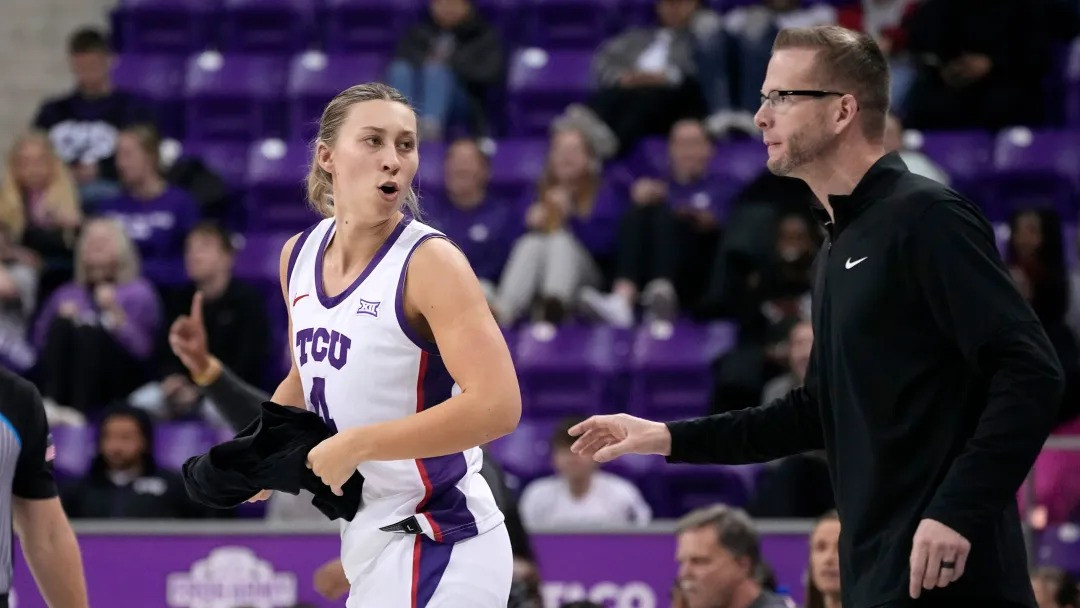A study analyzing 334 nonprofit, four-year colleges ranked TCU third in the nation for the most liquor-law violations referred for disciplinary action per 10,000 students.
Out of the 734 students being referred for disciplinary action for violating the liquor-law, 658 were in on-campus university housing.
Junior computer science major Alexander Parris said he has seen different types of drunkenness, from crying to being immobile.
“We are at TCU — drinking isn’t normal, it’s the standard,” Parris said.
TCU can give a liquor-law violation to anyone under the age of 21 who possesses alcohol anywhere on campus. Those under 21 can also receive a violation for being in a room with alcohol paraphernalia like a shot glass or a keg. Students who are 21 and older can store or drink alcohol in their room if they’re living on campus, but they can be given a violation for inviting anyone under 21 into their room while alcohol is out or selling alcohol to anyone underage.
Regardless of age, anyone caught displaying drunkenness or bringing alcohol to class can be given a violation.
Sherley Hall Residential Assistant (RA) Jessica Olmedo said residential assistants must have evidence liquor-laws are being violated before they can approach dorm rooms or apartments.
“An example they told us is, if you hear glasses clinking, or you see in the trash room that someone has thrown away [beer bottles] or they’re literally yelling, ‘shots,’ in their room, that’s enough evidence for an RA to go knocking,” Olmedo said.
Bianca Newton, program manager of alcohol and drug education, said residential assistants don’t issue violations– they only document the alcohol situation. After documentation, the students are referred for disciplinary action to Campus Life or a hall director, who then decides whether to issue the violation. When the first violation is given, the student must pay a $150 fine, meet with an alcohol and drug education staff member and attend an alcohol education workshop.
Sophomore communication studies major Sarah Smith said she thinks TCU has so many liquor-law violations because the campus police department and residential assistants are very strict about enforcing alcohol policies on campus.
“I feel like at other schools they probably have more drinking,” Smith said. “But the RAs are a lot more aware of it here. I think that alcohol is emphasized because we get in trouble so often because of it.”
In an email, Assistant Chief of TCU Police Robert Rangel wrote the TCU Police Department “does not actively patrol campus looking for alcohol violators,” but if officers see someone in violation, they will take action.
Olmedo said RAs are usually misunderstood and don’t go out of their way to catch students.
“It’s not like how the cops will give out speeding tickets to meet their quotas,” Olmedo said. “RAs don’t have any of that. It’s not like I’m trying to get anybody in trouble, it’s just they make it very obvious sometimes.”
Newton said because RAs only document alcohol situations, TCU “wouldn’t have a higher number of alcohol violations because our RAs are stricter.”
Olmedo said the requirement for students to live on campus for two years could be a reason why there are so many alcohol violations.
“That’s not a rule that many other universities have,” Olmedo said. “So sophomores are starting to, I guess, explore more. That’s twice the chance to get caught.”
The study also only accounts for referrals, which aren’t always issued at universities.
Texas A&M University at College Station has just over 66,000 students and does not require students to ever live on campus. At A&M, 103 on-campus liquor-law violations were referred for disciplinary action in 2016, while TCU had about seven times as many violations with 734 referred for disciplinary action.
Nationally, almost 60 percent of college students between the ages of 18 and 22 reported having drunk in the past month, and almost two out of three of them engaged in binge drinking during that same timeframe, according to the National Institute on Alcohol Abuse and Alcoholism.
Senior communication studies major Rachel Herrera said she sees underage students binge drink because they can’t buy a drink whenever they want.
“Students who are underage engage in binge drinking more because it’s a scarcer resource for them,” Herrera said. “People who can buy alcohol legally seem to be more into chill drinking.”
Olmedo said it’s unfortunate so many students struggle with alcoholism before coming to TCU.
“The sad part is a lot of kids come with drinking problems,” Olmendo said. “They don’t form them here.”
To combat problem drinking on campus, Newton said the most effective way to reach students is through one-on-one interventions. He said these interventions are “more effective than some of the online training.”
Any student can set up an appointment with the Alcohol and Drug Education Center to schedule a one-on-one talk with a counselor, but the session is required for those who receive a liquor-law violation.








